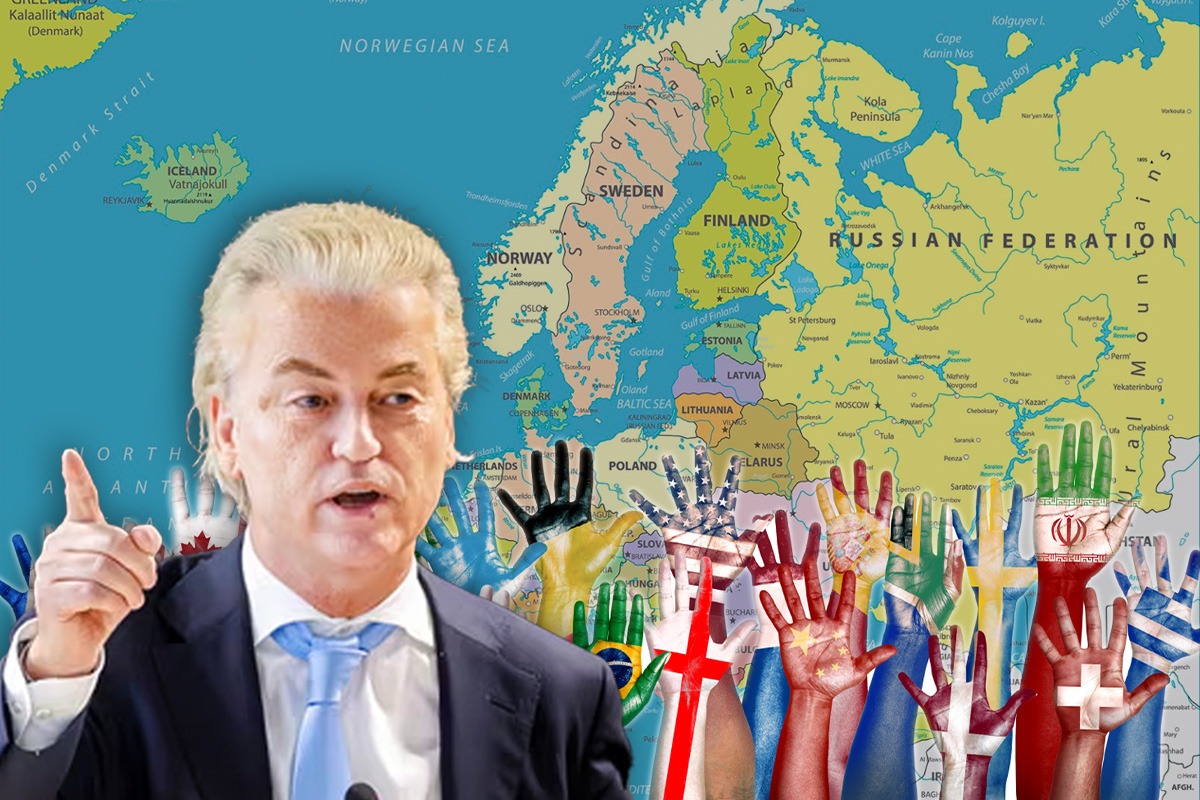Europe is experiencing a rise in right-wing parties that are garnering increased support and influence throughout the continent. In Italy, Giorgia Meloni’s Brothers of Italy has established the most far-right government since Benito Mussolini’s fascist era. Meanwhile, in Sweden, Sweden Democrats, a party with neo-Nazi origins has secured over 20% of the vote, and the Wilders’ Party for Freedom (PVV) has exceeded expectations, obtaining 37 seats in the 150-seat Dutch parliament—twice its previous count. This trend indicates a rightward shift in the political dynamics of Europe.
These parties share a common agenda of nationalism, populism, and anti-immigration, which appeals to many voters who feel disillusioned and threatened by the challenges of globalization, diversity, and integration. They also share a common enemy: multiculturalism, the idea and policy of respecting and celebrating the different ethnic and cultural groups within a country.
Multiculturalism, which was once hailed as a progressive and tolerant approach to managing diversity, has failed to deliver on its promises. Instead of fostering harmony and cohesion, it has created friction and division. Instead of enhancing identity and belonging, it has eroded loyalty and solidarity. Instead of enriching culture and society, it has diluted values and norms.
Multiculturalism has failed because it has neglected the importance of a common and shared culture, which is essential for the functioning of a democratic and pluralistic society. Without a common culture, there is no common language, no common history, no common vision, and no common destiny. Without a common culture, there is no basis for mutual understanding, trust, and respect. Without a common culture, there is no sense of “we” and “us”, only “them” and “us”.
Multiculturalism has also failed because it has ignored the reality of human nature, which is not always rational and tolerant, but often emotional and tribal. People have a natural tendency to identify with their own group and to distrust or dislike those who are different. This tendency is amplified by the forces of social media, which create echo chambers and filter bubbles, where people only hear and see what they want to hear and see. This tendency is also exploited by the forces of extremism, which manipulate and radicalize people, especially the young and the marginalized, to turn them against mainstream society.
The breakdown of multiculturalism has opened the door for the ascent of right-wing parties, presenting a straightforward and attractive narrative: the safeguarding and reinstatement of national identity, sovereignty, and security. These parties pledge to protect the interests and values of the native majority, resisting the impact and encroachment of foreign and minority groups. They assert themselves as the genuine voice of the people, aiming to confront an allegedly corrupt and disconnected elite and establishment.
The rise of the right-wing parties poses a serious threat to the future of Europe, which is built on the ideals of democracy, human rights, and the rule of law. These parties undermine the principles and institutions of the European Union, which aim to promote peace, cooperation, and integration among the member states. These parties also endanger the stability and security of the region, which faces multiple challenges and crises, such as the pandemic, climate change, migration, and terrorism.
The rise of the right-wing parties also challenges the conscience and responsibility of European citizens, who have to decide what kind of Europe they want to live in and leave behind for the next generations. A Europe that is closed and hostile, or a Europe that is open and friendly? A Europe that is divided and fearful, or a Europe that is united and hopeful? A Europe that is regressive and reactionary, or a Europe that is progressive and visionary?
The choice is clear: Europe needs to reject the right-wing parties and their divisive and destructive agenda and embrace a new and better way of dealing with diversity. A way that is not based on multiculturalism, which separates and isolates, but on interculturalism, which connects and engages. A way that is not based on difference, which alienates and antagonizes, but on commonality, which unites and harmonizes. A way that is not based on exclusion, which marginalizes and oppresses, but on inclusion, which empowers and liberates.
Interculturalism is the way forward for Europe, which can and should celebrate its diversity, but also cultivate its unity. Interculturalism is the way to create a common and shared culture, which respects and values the different cultures, but also fosters a sense of belonging and citizenship. Interculturalism is the way to overcome the challenges and seize the opportunities of the 21st century, which require cooperation and innovation. Interculturalism is the way to build a Europe that is not only diverse and plural but also cohesive and strong.









